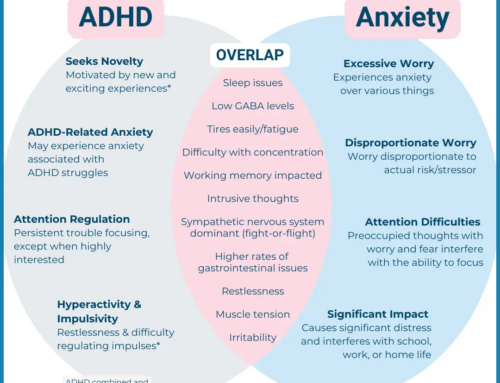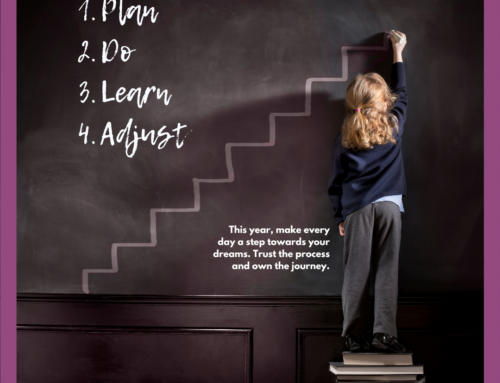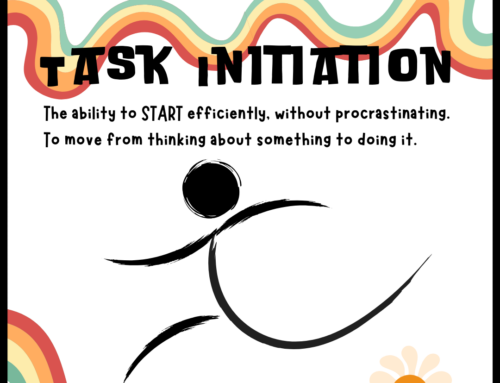Each of us has seasons of increased and decreased productivity in school, work, and life. When we prioritize time and bandwidth, some tasks naturally get more time and attention, while others get less. We choose our battles, enter the arena. We strive, we err, we apologize, we get back up. A classic underachiever, however, has decided not to enter the arena.
What do underachievers do instead? Avoid risk and responsibility, invent excuses, charm teachers, parents, and coaches into doing the work, lie to distract adults from their insecurities, from showing up and being seen, and blow up when parents try to talk about their grades, their potential, or their future.
Parents of underachieving kids may feel that no matter what tactics they try—from love, support, and praise, to punishment and micro-managing—the cycle of mistrust and frustration in their family keeps repeating. That’s because underachievers see challenges and responsibilities as threats. Their emotional response to that threat is fear, and this fear leads them to avoid those challenges and responsibilities.
And what gradually happens? Without victories to celebrate—really celebrate—it is impossible to cement hard work with feelings of success, progress, learning, and achievement, and so underachievers fail to build the brain pathways that link positive feelings of satisfaction and excitement with overcoming challenges. Instead, they experience only negative emotions and try to avoid those negative emotions at all costs.
Why praise and consequences can both backfire:
Praise for hard work can actually feel threatening to an underachiever. When a parent says, “See what applying yourself can do?” the kiddo thinks, “Now they’re going to expect this from me all the time [which is kinda true, right?], and I can’t take the pressure.” And that one step forward turns into three steps back.
The next logical choice might be to say, “I’m done. I quit. I’m out. You won’t let me help you, and you’ve destroyed my trust. You’ve gotten yourself into this mess, you can get yourself out.” After all, most parenting advice maintains that children should experience the consequences of their behavior. But letting them fail may not work either.
If you have a kiddo who is chronically underachieving, letting her or him fail will only reinforce the cycle of hopelessness. In the way that Executive Function struggles can prevent learning from the past and applying those lessons to the future, a student who avoids responsibility will not learn from failure. That’s because when underachievers fail to accept responsibility for their actions, they also avoid feeling responsible for the consequences of their actions. So when those negative consequences unfold, underachievers don’t recognize that they themselves brought about those consequences. The result? They feel even more out-of-control and discouraged.
What’s the solution?
So do we micromanage our kiddos’ every move and muscle to keep them on track and chip away at the assignment, project, task, or long-term goal? Nope. (Sorry.) This strategy forces the parent to become responsible for the kid. Do you see it? Once again we’ve been duped. Underachievers are often masters at letting others take care of them, make decisions for them, and worry for them. And if the parent is doing all of that hard stuff, the kiddo—once again—avoids it. Let me be clear: this is not a choice the student consciously makes. Underachievers lack the ability to persevere even when they want to do well.
Emotionally healthy individuals have, as distinguished clinical psychologist Michael D. Whitley describes, two great powers at their disposal: the power to love and the power to work. By contrast, underachievers lack emotional health when it comes to working. They’re inconsistent with their effort, lack perseverance, and fail to see and learn from the consequences of their actions. When children don’t learn the value of hard work (because they’ve avoided it at all costs), they can suffer from other problems like depression, anxiety, unhealthy dependence on others, and finding harmful substitutes for a meaningful life. In other words, kids who avoid accountability get trapped in patterns of victimhood and boredom. This is a cycle they may not even realize they’re in but perpetuate at every decision that avoids responsibility.
Are you seeing a theme here? Underachievers’ struggles are counterintuitive, frustrating, discouraging…and real. I know that every person reading this can in some way relate to these heartbreaking patterns—you may recognize yourself or someone you love.
So. What can we do? Let’s start with 3 steps that parents, coaches, and caregivers can apply this week. This is a process and, as Whitley likes to say, “Rome wasn’t built in a day.” Still, let’s lay the foundation for stepping into the arena.
- Remain positive. As much as we’d like them to change, the change has to start with us. They take our cues without realizing it. Think of it as your secret superpower. Your positivity is your shared foundation, identity, and hope. Show them who you are; show them who you are striving to be. And when you feel like you’ve hit a wall, allow yourself to rest. Know there will be another way, another day. Parenting is doing good, and good work is tough work. You will make mistakes of course—we all do. But if you remain committed to finding the good and doing the good work, you will find joy. Take joy in the hard work, regardless of the result. After all, isn’t that what we’re asking our kids to do?
- To become responsible for themselves, they first must know themselves. To help an underachieving child break the cycle of avoiding responsibility, we need to uncover the motivations behind those behaviors. Often these reasons turn out to be far different from what we’ve been telling ourselves. And because the child is entrenched in this cyclical pattern of behavior, they cannot see its root causes until you uncover it together. Keep a journal of your observations and curiosities as you try the following: Listen actively and resist the impulse to judge or add your opinion to their answers. First ask, “How did this happen?” If the child says, “I just can’t help it,” or “I can’t make myself remember,” or “I just can’t make myself pay attention when I’m bored,” respond with “reflective” questions. For example: “How did that helplessness feel when you were bored?”
- Understand the role executive function skills can play in helping your underachiever. Executive functioning has been compared to the conductor of the orchestra; it coordinates thinking with doing and is responsible for many of our first successful experiences in school, work, and our daily lives. Executive functioning forms a foundation for successful navigation through life and finding purpose, joy, and success in the work we do. If you’ve got a classic underachiever in your life, it’s likely that they have trouble with most—if not all—of the skills listed below. For a way to start a simple conversation about these behaviors’ underlying motivations, take the Executive Function Surveys together as a family (For Kids / For Parents). As you begin to understand those behavioral roots together, your child can begin to dare greatly and enter that arena.
Executive Function Skills: Thinking and Doing Tasks
| THINKING | DOING | ||
| Working Memory | Remembering info for immediate use | Holding an idea in mind, adding to it or taking away | |
| Planning | Setting goals and steps to accomplish them | Executing the steps planned | |
| Time Management | Planning enough time for each task | Recording time each task took to reflect for next time | |
| Monitoring | Judging the quality and pace of work | Adjusting based on monitoring | |
| Impulse control | Delaying instant gratification | Stopping to think through what needs to be done | |
| Inhibition | Stopping off-task behavior | Switching to on-task behavior | |
| Organizing Materials | Tracking items in workspaces | Matching the “organized picture” to the actual | |
| Emotional Control | Regulating stress and distractibility | Taking steps to promote health and well-being | |
| Initiation | Starting work | ||
| Shift | Moving from one activity to another |
What parents have said about the EF Survey:
- Starts great conversations
- Leads to interesting and sometimes surprising results
- Gets at the issue’s heart without kiddo feeling like you’re invading
- Opens doors to asking questions—especially when parents and kids take together
- Enables reinforcing strengths and past growth
- Helps student internalize that it’s not about “not getting in trouble,” but rather about showing up and giving your best
- Provides starting place for setting goals
THE MAN IN THE ARENA
Excerpt from the speech “Citizenship In A Republic” delivered at the Sorbonne, in Paris, France on April 23, 1910
It is not the critic who counts; not the man who points out how the strong man stumbles, or where the doer of deeds could have done them better. The credit belongs to the man who is actually in the arena, whose face is marred by dust and sweat and blood; who strives valiantly; who errs, who comes short again and again, because there is no effort without error and shortcoming; but who does actually strive to do the deeds; who knows great enthusiasms, the great devotions; who spends himself in a worthy cause; who at the best knows in the end the triumph of high achievement, and who at the worst, if he fails, at least fails while daring greatly, so that his place shall never be with those cold and timid souls who neither know victory nor defeat.
—Theodore Roosevelt
Good news! We have an incredible variety of online courses you can start today. Visit www.thequantumjump.org to find inspiration on your parenting journey. You are not alone; we’re here to help you reach your vision of who you want to be as a parent.
Visit our Parent Resources page for more helpful insights. Download our Wheel of Life tool to start creating momentum today! Join our planning courses to build resilience!







